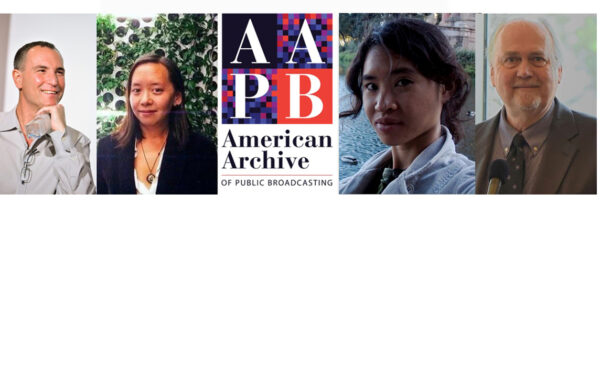

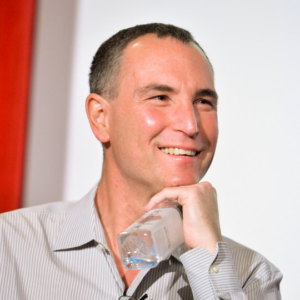 Silver Light Award
Silver Light AwardAMIA’s Silver Light Award recognizes outstanding professional achievement in the field of moving image preservation and archives.
Through his long tenure at Turner Classic Movies (TCM), Charlie Tabesh has supported archives and advocated for the work of archivists by promoting and programming their work, keeping the cause of film preservation in the public eye, including AMIA’s Archival Screening Night Roadshow and films inducted each year into the National Film Registry, promoting the mission of the National Film Preservation Board. His enthusiastic engagement with archival institutions and boutique distributors forefronts efforts in the preservation of not only Hollywood classics, but also silent films, documentaries, and obscure ephemeral films that may not otherwise find an audience. For more than 20 years, his vision has celebrated and helped to provide a public showcase for the preservation of our film heritage.
“We are really excited by this year’s award recipients!” said AMIA president Rachael Stoeltje. “Charlie Tabesh is an amazing advocate for the work of archives and archivists. He is a champion for creating public awareness to creating toolkits for collecting and preserving what is happening now to projects making our shared heritage more accessible, each of these honorees have made incredible contributions and their work will continue to impact the field for years to come.”
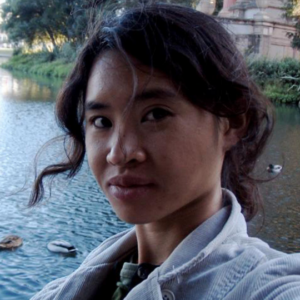 The Alan Stark Award
The Alan Stark AwardThe Alan Stark Award honors individuals who have made a significant contribution through their efforts on a special project that contributes to, and supports, the work of moving image archives and/or AMIA.
Yvonne Ng is the Senior Program Manager at WITNESS and co-authored The Activists’ Guide to Archiving Video, a comprehensive toolkit for collecting, cataloging, storing, and preserving video evidence related to human rights. It is an invaluable tool for media collectives, grassroots human rights organizations, and human rights activists to ensure their work can be used for advocacy, as evidence, for education, and for historical memory. In addition to managing WITNESS’s archive of human rights material, Yvonne also trains others on collecting and preserving video evidence and documentation for human rights advocacy work. Yvonne has served as an AMIA Board member and committee chair, also serving on the CAW Working Group, Advocacy Committee, Small Gauge/Amateur Film Committee, Independent Media Committee, International Outreach Committee, and Education Committee. An instructor for the AMIA Pathways Fellowship, she is also a regular contributor to online education, conferences, and symposia in the field.
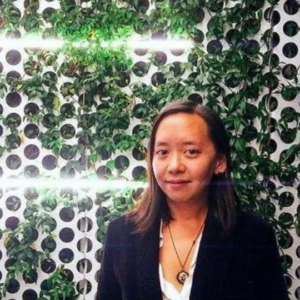 The William S. O’Farrell Volunteer Award
The William S. O’Farrell Volunteer AwardThe William S. O’Farrell Volunteer Award is named for long-time member Bill O’Farrell honoring his volunteer efforts and the mentoring role he played within the field.
This year’s recipient, Lindy Leong, is a film and media educator, film programmer, and audiovisual archivist. An indefatigable volunteer for AMIA, she chairs the committee responsible for the annual conference, serves on multiple committees, has been a contributor to The Moving Image journal, and has been part of the development of both the AMIA Pathways Fellowship and the Mentorship programs, serving on the initial task forces, as a mentor advisor, and as a mentor. In addition to her AMIA activities, she has worked with the Los Angeles Asian Pacific Film Festival, dedicated to the accurate portrayal of the Asian Pacific American peoples, communities, and heritage through the media arts, and has served on the program committee for SAA. She also volunteers in the community through the Sante D’Or Foundation in Los Angeles.
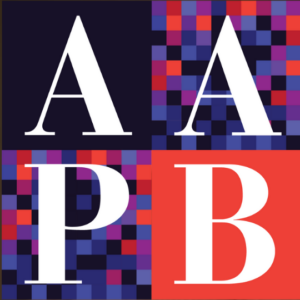 Ray Edmondson Advocacy Award
Ray Edmondson Advocacy AwardIn 2018, AMIA presented its first award for advocacy, and this year’s Ray Edmondson Advocacy Award will honor the American Archive of Public Broadcasting (AAPB), a collaboration between GBH and the Library of Congress. AAPB’s mission is to ensure that public radio and television, a rich source for American political, social, and cultural history and creativity, will be saved and made available once again to future generations. AAPB works to digitize and preserve public radio and television programs from across the nation. Since 2013, the AAPB has preserved and made accessible over 150,000 digital files from over 70 years of programming. Last year, the AAPB received a $16 million grant from the Mellon Foundation to support the preservation of these at-risk stories and programs from over 150 archives and public media organizations.
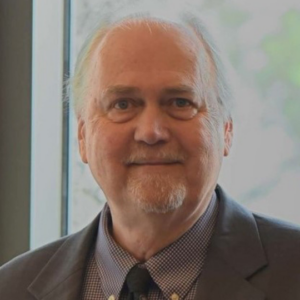 Keystone Award
Keystone AwardAMIA’s Keystone Award honors organizations or individuals who have had a foundational role in the Association or in the field.
Awarded only twice before, the Award honors Gregory Lukow and his contributions across the field to create foundations that have allowed the profession to grow and continue to evolve. In 1984, he began working at the American Film Institute’s newly created National Center for Film and Video Preservation, serving until it ended in 1998. While at Greg provided organizational services for AMIA’s predecessor, F/TAAC, then becoming a principal founder of AMIA, serving on the board for five terms, continuing the work and the relationship with AFI until 1996. There is no doubt that AMIA could not have developed as quickly in its formative years were it not for his work. While at the UCLA Film & Television Archive, Greg’s primary responsibility was to establish UCLA’s Moving Image Archive Studies program — the first such graduate degree offered in the U.S. UCLA established the first AMIA student chapter shortly after the program started. While at The Library of Congress his first seven years were focused literally on building a foundation. As the lead representative in overseeing the design and construction of the National Audio-Visual Conservation Center (Packard Campus), he guided one of the Library’s most advanced technological undertakings to its opening in 2007. Serving as its Chief since 2012, Greg has overseen the NAVCC’s growth and its future focused strategy, ensuring the long-term preservation and accessibility of our national audiovisual collection.
“Over his 40 year career, Greg Lukow’s work has been truly foundational our profession. He has been involved in key milestones that mark the evolution of the field – the creation of a professional association for moving image archivists, the development of the first graduate program in the US, and building the NAVCC in Culpeper. As the field continues to evolve, we do it on foundations he helped to put in place.” Stoeltje said. On January 13, 2025 Stoeltje will step into the role as Chief, National Audio-Visual Conservation Center, as Greg Lukow’s successor.
Our thanks to A+D Images, David Block, and Cambria Gillon for their work in creating our Awards presentation videos.